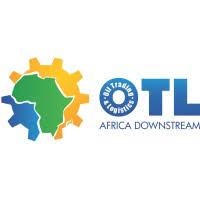The Lagos State Government has assured investors in the Nigerian oil and gas downstream sector, who are seeking to invest in Liquified Natural Gas, import terminals, pipelines, of policy priorities.
Ms. Sholabomi Shasore, Permanent Secretary, Ministry of Energy and Mineral Resources, said the state government would also give priorities to other strategic infrastructure aimed at improving the reliability of gas supply in the state.
Shasore gave the assurance in her goodwill message delivered at the 17th edition of the Oil Trading and Logistics (OTL) Africa Downstream Week, 2023, on Tuesday in Lagos.
Shasore, who was represented by Mr Antonio Ayodele, a representative of the ministry, said that now was the time for more synergy in the oil and gas downstream and midstream sector.
She said: “It is time to be innovative and to collaboratively drive the market through its murky waters, and it is also time to bring the market into a new horizon.
“ It is time to forge ahead into the new. Here in Lagos State, our policy priorities will support initiatives that will drive the market in this regard.
“These will include strategic infrastructure like LNG import terminals and pipelines, to improve the reliability of gas supply in Lagos State.
“We are pursuing an ambitious energy agenda that emphasises renewable sources, gas utilisation, and energy efficiency.
“We committed to stimulating the demand by facilitating switching to gas use across industrial, power and transport sectors,” she said.
Shasore said: “Incentives like intervention funds and collaboration through Federal agencies are planned.
“Through initiatives like our one-stop online portal, the state through the ministry strives to ease market entry and promote an enabling environment for downstream operators in Lagos State.
“We are committed to supporting your business growth and excellence”.
Ayodele, on his part disclosed that the IBILE Oil Gas Corporation (IOGC), Lagos State’s key implementation agency, was collaborating with the private sector, Federal Government and state agencies, kit conversion, and other related Original Equipment Manufacturers (OEM), to ensure a smooth transition for alternative fueling of vehicles.
He said that the agency was mandated to invest and transit the Lagos State Government to alternative fueling solutions (natural gas, electricity, hydrogen or bio-fuels), with a clear objective to reduce emissions, lower cost and increase energy security.
Ayodele, therefore, stated that some of the plans included providing adequate infrastructure development such as conversion centres, refueling stations, charging stations, and distribution networks.
@@@@@@@@@@@@@@@@@@@@@@@@@@@@@@@@@@@@@@@@@@@@@@@@@@@@@@@@@@@@@@@@@@@@@@@@@@@@@@@@@@@@@@@@@@@@@@@@@@@@@@@@@@@@@@@@
OTL : FG urges downstream players to pool resources into refining petroleum products
Mr Gabriel Aduda, the Permanent Secretary of the Ministry of Petroleum Resources, says the ministry plans to review the implementation of the Petroleum Industry Act (PIA).
This, he said, would be with stakeholders in the upstream and downstream sector, after two years of its implementation.
Aduda disclosed this known at the ongoing Oil Trading and Logistics (OTL) Africa Week 2023, on Tuesday in Lagos.
The theme of the 2023 OTL is “Energy, Synergy, and New Beginnings”.
He called on operators in the Nigerian downstream sector to work together and pool resources to invest in refining petroleum products to address the country’s energy crises.
He stressed that the quality of technology possessed by the operators should not be a barrier to investment in refining.
According to him, the review will identify the pros and cons of the Act and all the areas that need to be addressed.
“The review is expected to hold before the second week of December 2023, where all oil and gas industry players would gather to discuss all the fundamental issues that needed to be addressed in the Act.
“It is crucial for all players in the oil and gas industry to embrace the spirit of synergy, adding that the energy landscape is rapidly evolving,” he said.
He emphasised that the solution to Nigeria’s product refining lies in the willingness of the private sector to make the difference, to collaborate, learn, and inspire one another.
He noted that it is the responsibility of the players in the downstream sector of the oil and gas industry to shape a future where energy is clean, accessible, and equitable for all.
“While much attention has been focused on the upstream sector (exploration and production) in discussions about energy transition.
“The downstream sector, which involves refining, distribution, and marketing of petroleum products, plays a crucial role in this transition.
“With the level of technology that is at their disposal no matter how crude they are.
“Why can’t we begin to think in the area of harnessing the limited potentials that we have and see how we can put things together to evolve a clear home-grown technology.
“That we can build on to be able to deliver the energy future of our dream,” the permanent secretary said.
He also commented on the need for the petroleum industry regulators in Nigeria, including the Nigerian Midstream and Downstream Regulatory Authority (NMDPRA) to offer supportive regulation to the investors in the sector.
According to him, the beauty of the regulation is to help the industry in Nigeria to be globally competitive and acceptable, to attract more investors and put a check on their activities.
Aduda further hinted that infrastructure in the downstream sector was a major factor facing the sector.
“Today we embark on an investment road show globally to attract investors to Nigeria, but one of the major concerns being raised is lack of investment in the sector.
He, therefore, noted that the downstream sector is no longer confined to traditional boundaries.
According to him, it is about collaboration, innovation, and adaptability.
“The challenges we face are not unique to any single entity but shared by all.
“Together, we can overcome them and pave the way for a brighter, more sustainable future.
“The energy sector is witnessing a renaissance of sorts, heralding new beginnings.
“As we move towards a more sustainable, eco-friendly future, our industry must lead the charge.
“Nigeria, as a significant player in the global energy landscape, faces the challenge of balancing its hydrocarbon-based economy with the need to transition towards cleaner and more sustainable energy sources,”Aduda added.
He emphasised the importance of ensuring the availability and guaranteeing the gas supply before the discussions around conversion of buses to Compressed Natural Gas (CNG) were put in place.
He said, “The downstream players must work with the government to expand trunk and distribution gas pipelines across the country, as well as supply and distribution of refining capacity expansion, supportive regulations, renewable energy integration, and workforce development.
“As laudable as the Presidential Initiative on CNG is for example, we must be careful not to put the cart before the horse, we need the buses, we need the converters but then where is the gas?” he cautioned.
Similarly, Mr Adetunji Oyebanji, the Chairman Advisory Board, OTL Africa Downstream Energy Week, said the event had a strong presence in the industry.
Oyebanji noted that the ongoing conflicts in Eastern Europe and the Middle East had continued to transmit volatility, while the energy transition had challenged markets and forced operators to innovate.
According to him, closer home, policy and political changes remain a factor, with market players keen for clarity for their operations.
“These factors have combined to make OTL 2023 very important, as we look forward to robust engagements,”Oyebanji said

























